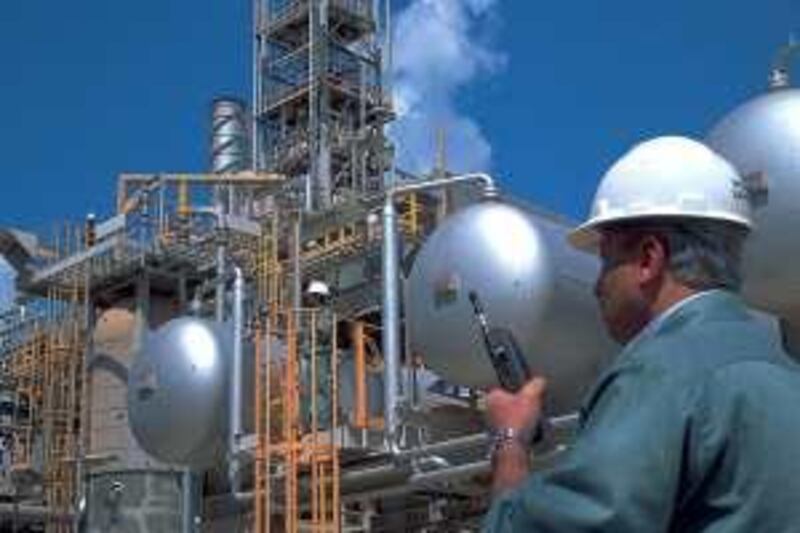The Abu Dhabi National Oil Company (ADNOC) has told customers oil exports from the capital will rise in October after months of steep cuts agreed to by OPEC to boost prices. The move indicates the state oil firm may raise production, despite little prospect that OPEC will change its output quotas at its meeting in Vienna on September 9.
ADNOC, the chief source of the Government's revenues, will export four major crude streams in October at 15 per cent below normal levels, a jump from minus 19 per cent in September, according to a monthly notice sent to refiners. OPEC, the 12-member oil exporters' group, will hold a regular meeting on September 9 in Vienna to decide whether the limits should be amended. The increase for October was a sign that the Abu Dhabi Government would probably oppose further cuts, said Robin Mills, an oil economist based in Dubai.
"2008 skews our perception," Mr Mills said. "We're still at an all-time price high. You've got to be realistic about what kind of price you're demanding." Oman sour crude, traded on the Dubai Mercantile Exchange, closed on Friday at US$71.44, while US crude traded in New York stood at $72.74 a barrel, down 36 per cent compared with a year ago. Prices are now within the $70 to $75 range, described in March as a "fair price per barrel" by Sheikh Khalifa, President of the UAE. King Abdullah of Saudi Arabia has said $75 would be a fair price.
ADNOC, which pumps nearly all of the UAE's oil, does not disclose timely output figures so the monthly notice, called a nomination cut, is widely seen as the best measure of the country's production plans. In July, the latest month for which production numbers are available, ADNOC set its nomination cut for all four crude streams at 18 per cent below normal, and the UAE pumped an average of 2.24 million barrels per day (bpd), according to secondary sources cited by OPEC.
The country can sustainably pump 2.85 million bpd, according to estimates by the International Energy Agency. At the end of last year, as oil prices sank close to $30 a barrel, OPEC members pledged to reduce total output by 4.2 million bpd compared with September 1 output levels, a move met with record compliance from member states and widely credited with helping to stabilise prices. But as prices rise, compliance will continue to weaken among the Gulf states, which have led the group in adherence to quotas, Mr Mills said.
"There's a temptation to start ignoring the quota a little bit," Mr Mills said. "We're definitely seeing weaker OPEC compliance with the cuts. The last number I saw was something like 70 per cent, compared to 80 per cent earlier this year." OPEC was unlikely to deepen cuts at its next meeting, but would also be careful about rolling back current limits, Mr Mills said. Kuwait also signalled yesterday that it would oppose an additional production cut. Economic recovery in Asia could support prices at current levels, and producers were fearful that a spike in prices could harm the global economy, said Imad al Atiqi, a member of the country's supreme petroleum council.
"OPEC are unlikely to cut," Mr al Atiqi told Zawya Dow Jones. "There's now an economic recovery in consumer countries like China, India and the Far East, so this is likely to continue to support prices. "The internal consumption by OPEC countries is also a growing factor, which is often not considered. Their consumption is eating into their exports." Mr al Atiqi said he would favour reducing current curbs on output if prices hit $100 a barrel.
"A couple of months at $100 a barrel would raise an alarm, as then it won't be desirable for the global economic recovery and would create another cycle in the reduction in demand," he said. "That will not be welcomed by OPEC or consumers." * with Zawya Dow Jones cstanton@thenational.ae





